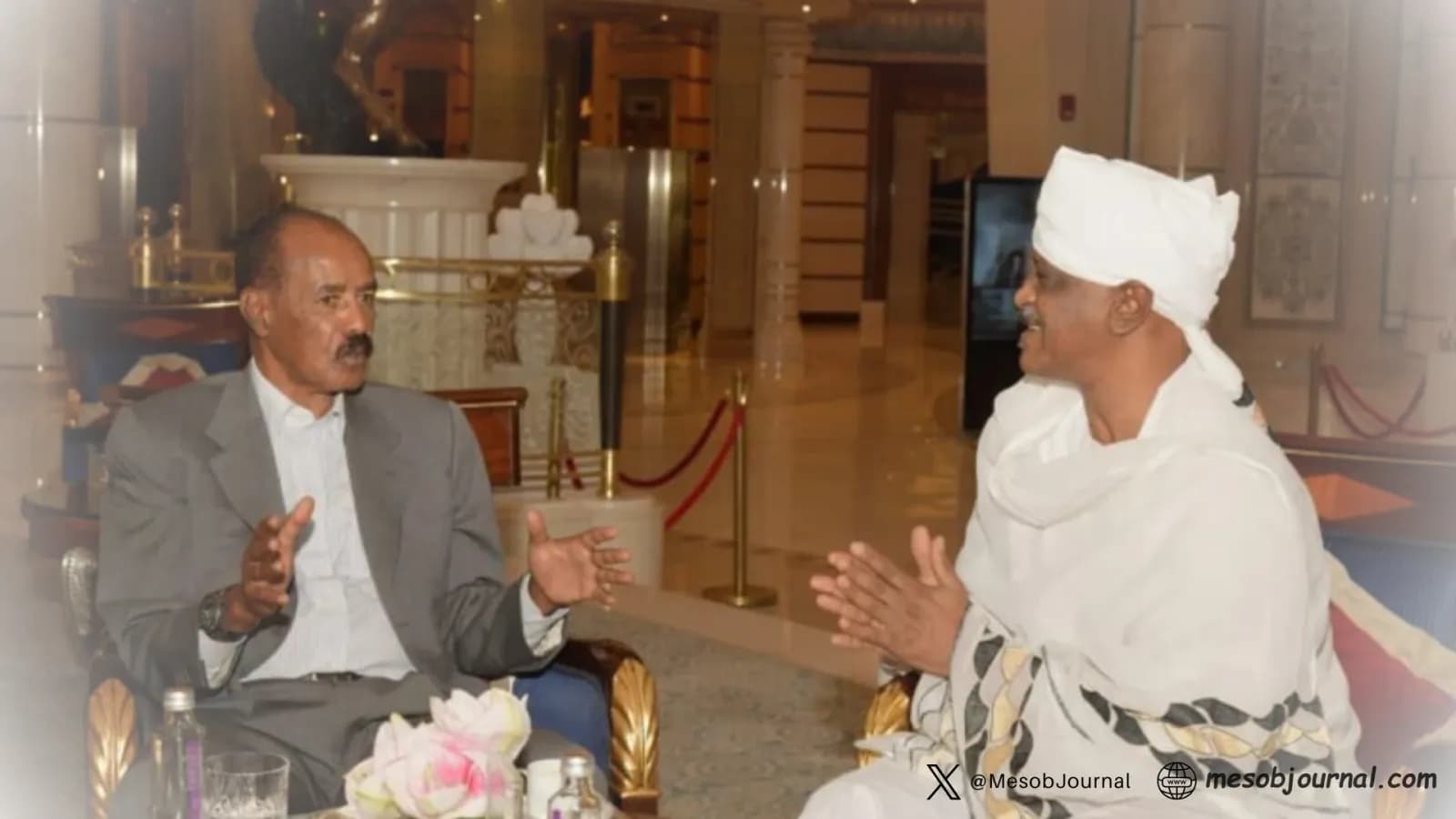Eritrea Triumphed Alone: History Can’t Be Rewritten

When history threatens the comfort of power, the truth itself becomes the target.
That is precisely what Eritrea faces today — a new wave of revisionism disguised as “analysis,” peddled by Abiy Ahmed’s Prosperity Party (PP) activists and pseudo-intellectual circles such as “Horn Review.” Their latest distortion? The absurd claim that Eritrea’s thirty-year war of liberation was foreign-sponsored.
It is not just false. It is morally repugnant.
On October 18, Eritrea’s Minister of Information, Yemane G. Meskel, dismantled this lie with the clarity of history itself. “Eritrea triumphed — alone against the mighty,” he wrote, reminding the region that the liberation struggle was not the gift of outsiders, but the result of enormous, almost unthinkable sacrifice by Eritrea’s own sons and daughters.
For three decades, Eritreans resisted not one but two global power blocs: a U.S.-backed emperor on one side, a Soviet-armed junta on the other. They endured bombings, famine, exile, and betrayal — and still prevailed. Few liberation movements in modern history fought against both sides of the Cold War and won. Eritrea did.
The Cost of Truth
Minister Yemane’s statement carried an even deeper message: Eritrea should never have had to pay such a price in the first place.
Its right to decolonization — like that of every other African nation emerging from colonial rule — was clear under international law in the 1940s. Yet powerful interests blocked that path, denying Eritreans their sovereignty for half a century.
That betrayal set the stage for decades of suffering and war — and today, the same moral blindness reappears in the Ethiopian ruling party’s propaganda machine. Rather than atone for historical crimes, they reopen old wounds by questioning Eritrea’s legitimacy and mocking its independence as a “foreign creation.”
But moral decency, as Minister Yemane put it, “demands that those who perpetrated much pain and tribulation on the people of Eritrea for decades apologize and atone — not add insult to injury by rubbing old wounds.”
Red Sea Fantasies and Historical Amnesia
Just days earlier, on October 14, Berhane G. Solomon, Eritrea’s Chargé d’Affaires in Washington, cut through the latest “Red Sea access” hysteria with similar precision:
“It must be clearly stated that Ethiopia — since its inception as a country — has never, at any point in history, possessed sovereign access to the Red Sea.”
That single sentence buried the Abiy government’s “Red Sea ambition” narrative for good.
From Menelik II’s imperial expansions to the Derg’s bloody occupation, Ethiopia’s temporary use of Eritrean ports was never sovereignty — it was occupation. The 1963 OAU principle of uti possidetis juris — the sanctity of colonial boundaries — codified this reality. The line between Eritrea and Ethiopia is not an emotional one. It is a legal and historical border recognized by international law and confirmed through war, diplomacy, and arbitration.
“Any attempt by Ethiopia’s current PP leadership to lay claim to Eritrean land or ports like Assab,” Berhane warned, “is not only historically false but an open violation of international law.”
A Settled Reality
Eritrea’s sovereignty is not an open question. It is a settled and irreversible reality.
Those who seek to reopen that chapter — whether through propaganda, revisionist narratives, or proxy wars — are not engaging in debate; they are engaging in destabilization.
Eritrea’s independence was not handed down by foreign powers. It was earned by an entire generation’s blood, intellect, and unity — “alone against the mighty,” as Minister Yemane wrote.
And that is the fundamental difference between those who build nations and those who fabricate illusions.
Related stories

Abiy Ahmed’s Strategic Isolation Is Now in Writing
What Addis Ababa has spent two years denying is now staring it in the face—on White House letterhead. The January 16 letter from Donald Trump to Abdel Fattah el-Sisi isn’t just about mediation. It’s a signal. Clear, deliberate, and consequential. Washington is aligning itself

REDISCOVERING ERITREA: A UN Resident Coordinator’s Testimony of Progress and Potential
In a world crowded with assumptions and secondhand narratives, firsthand testimony matters. Over the past two years, the United Nations Resident Coordinator in Eritrea has offered exactly that: a grounded, lived account of a country often discussed from afar but rarely understood

When Maps Become Messages: Ethiopia’s Dangerous Normalization of Territorial Claims
There are moments in diplomacy when silence is louder than words. And there are moments when a picture—deliberately chosen, officially circulated—does more damage than a thousand speeches. The map displayed this week in a video released by Ethiopia’s Prime Minister’s Office belon

President Isaias Afwerki: Ending Sudan War Requires Cutting RSF Supply Lines
Eritrean President Isaias Afwerki has said that any serious effort to end the war in Sudan must begin with cutting off the supply routes that continue to arm and sustain the Rapid Support Forces (RSF), warning that calls for ceasefires are meaningless while weapons and mercenarie

